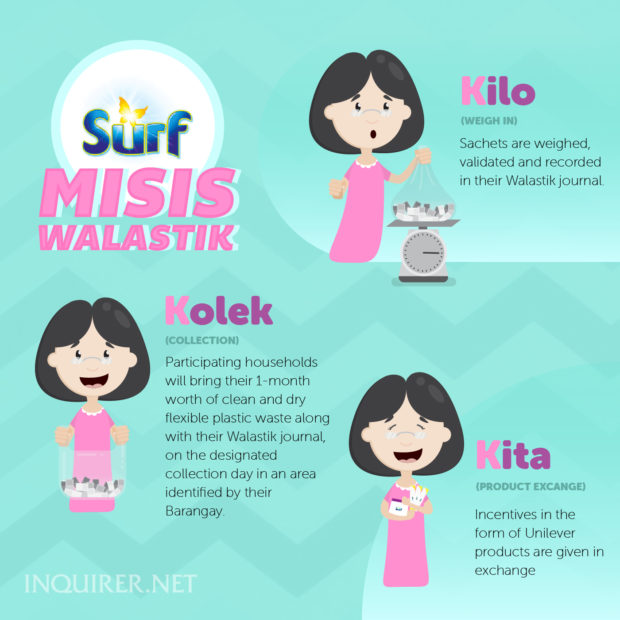Here’s how you can help the environment by joining this community-based program in your barangay
According to a 2018 statement from the National Solid Waste Management Commission, the country generates nearly 10 million tons of waste annually. Food Industry Asia published a 2017 report that reflects 21% of plastic waste is leaked into our oceans. A United Nations report predicts that, if this trend continues, the world’s oceans will have more plastic than fish by the year 2050.
In an effort to answer the global call to reduce plastic waste, in 2017 Unilever embarked on a commitment to make all of its packaging recyclable, reusable or compostable by 2025. This is part of a larger effort captured by the Unilever Sustainable Living Program which was launched in 2010. In pursuing these commitments, the company has been relentlessly working with the government, academe, industry groups, and various community-based organizations to develop sustainable packaging solutions.
Single-use sachets have allowed a greater number of Filipinos from low-income families to avail of quality products in smaller quantities. However, while many have benefited from purchasing products in such packaging, the reality is that sachets continue to pose challenges to the environment.
To address this, Unilever Philippines launched the Surf Misis Walastik campaign. Under a simple call to action, call “Kolek Kilo Kita,” it is an end-to-end model on sachet recovery and conversion. Starting with select communities within the cities of Manila, Pasig, and Taguig, the ultimate aim is to scale up the model across key cities in the metro by 2020.
Over the years, the collected sachets were converted into energy, cement pavers and, recently, through a partnership with the Villar Sipag Foundation, into school chairs that are donated to public schools.
This grassroots program based on collective action yielded inspiring results. In 2018 alone, the Company reported that it was able to collect over 310 metric tons of flexible waste thus successfully diverting this from our waterways.
To run the program, a key component is a Waste Wais Team composed of barangay officials and community leaders in a partner site. Unilever equips the Waste Wais Team with information and communication materials to share with their kabarangays to ensure they segregate and set aside their flexible plastic waste for collection at designated periods each month. Each household is given a Misis Walastik journal so they can track their collection and ensure they can exchange each kilo of sachet waste, regardless of brand, into Php10 worth of Unilever products.
For more information about Surf’s Kolek, Kilo, Kita campaign, follow Unilever Philippines on Facebook and Instagram.
INQUIRER.net BrandRoom/LA
